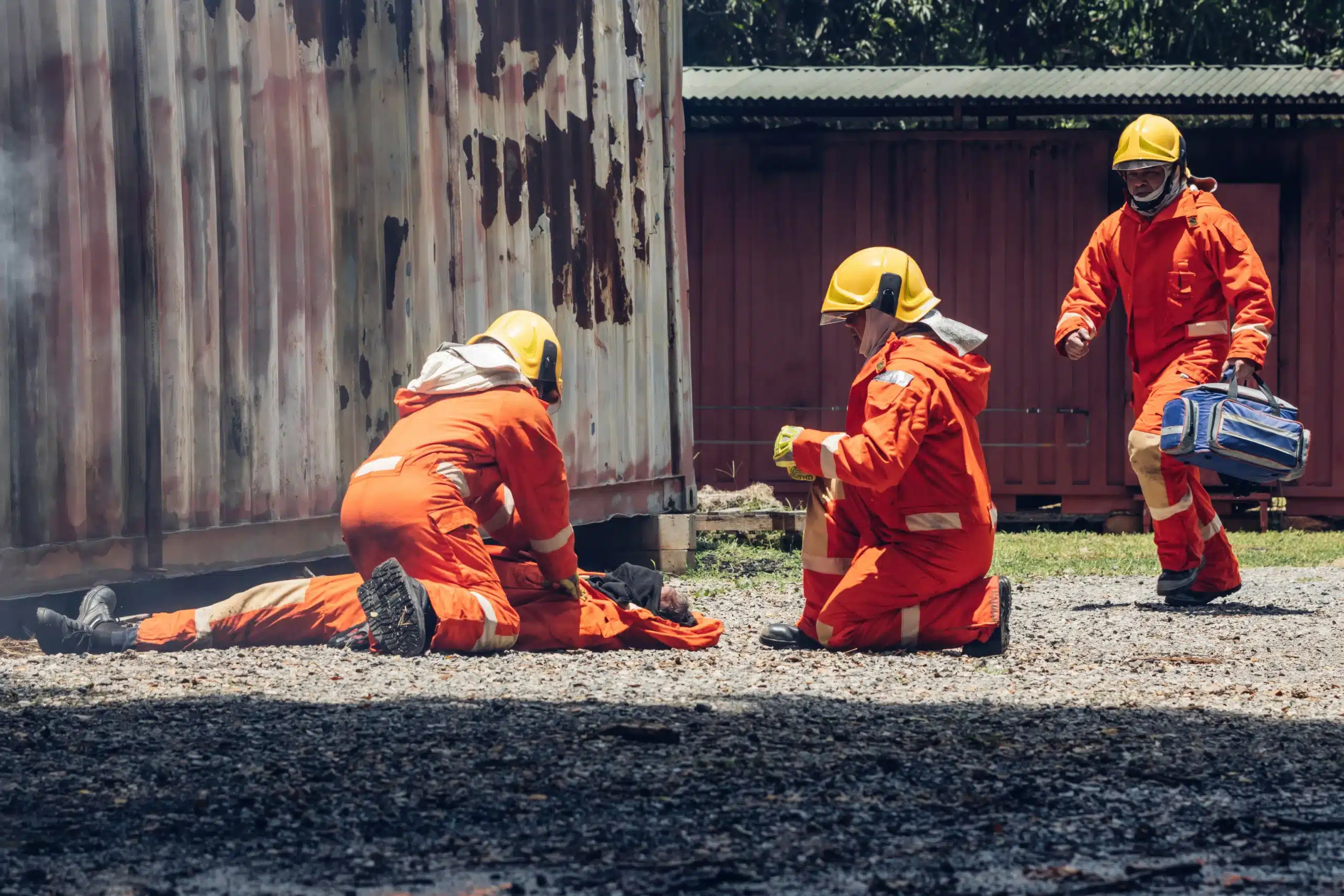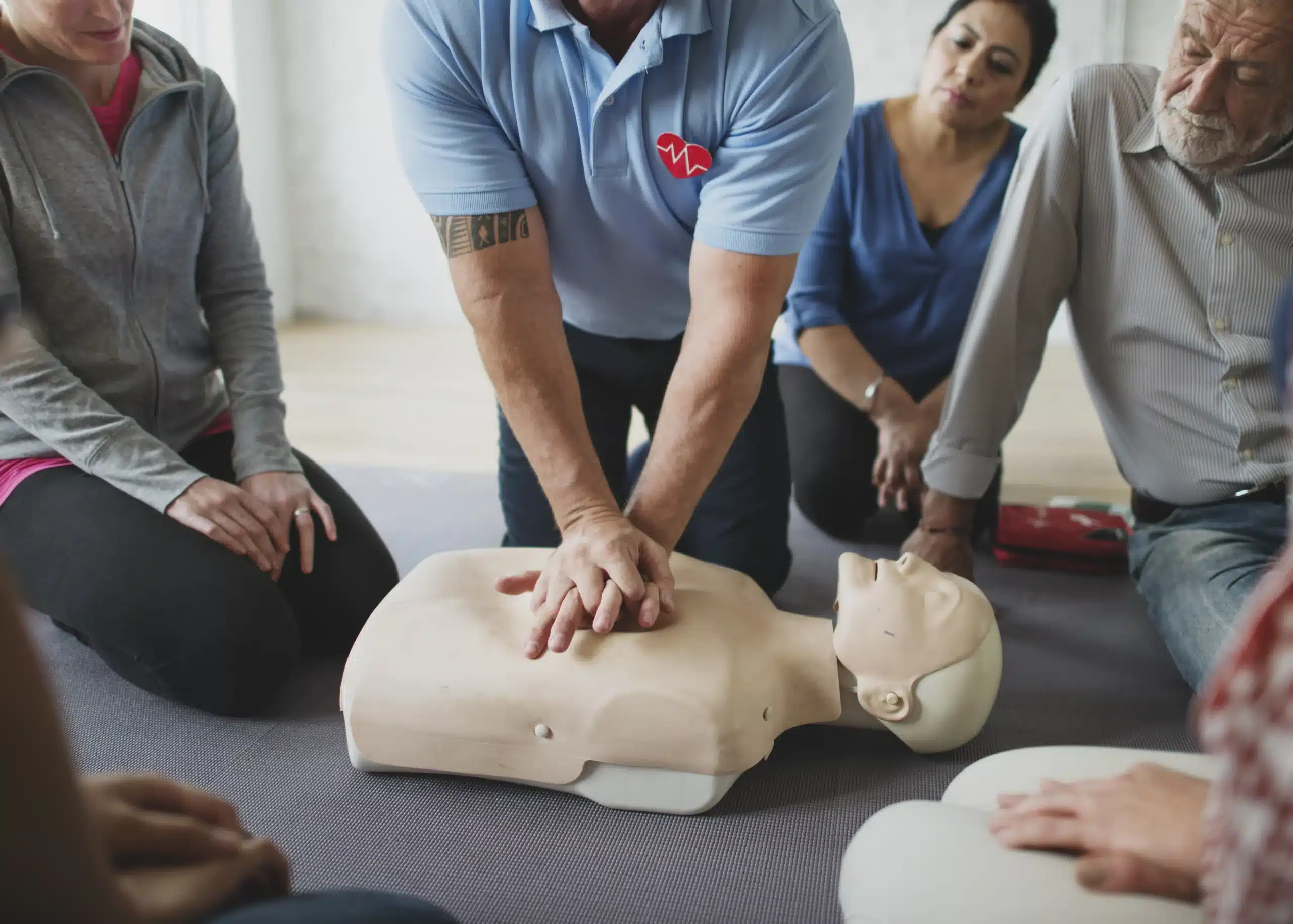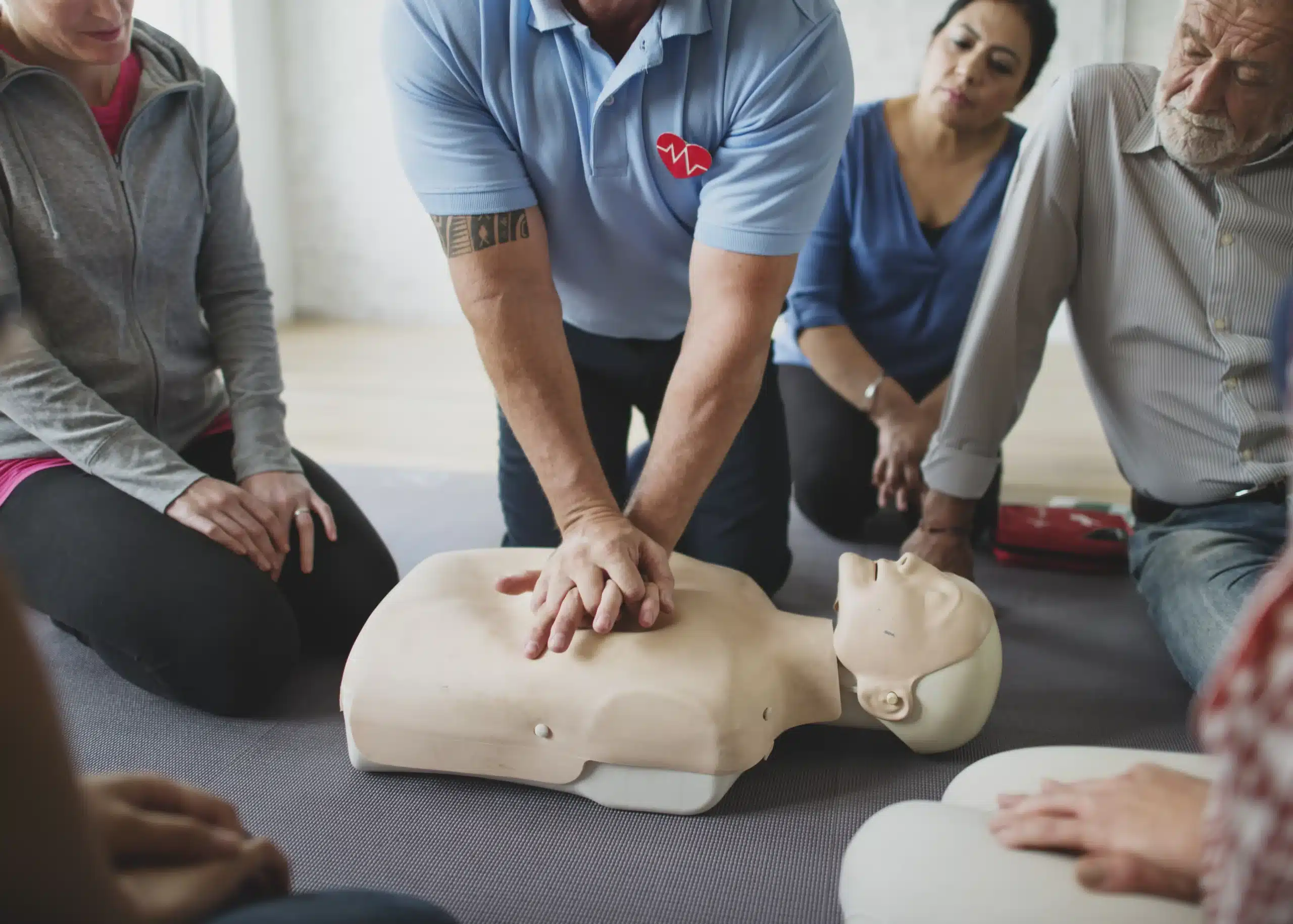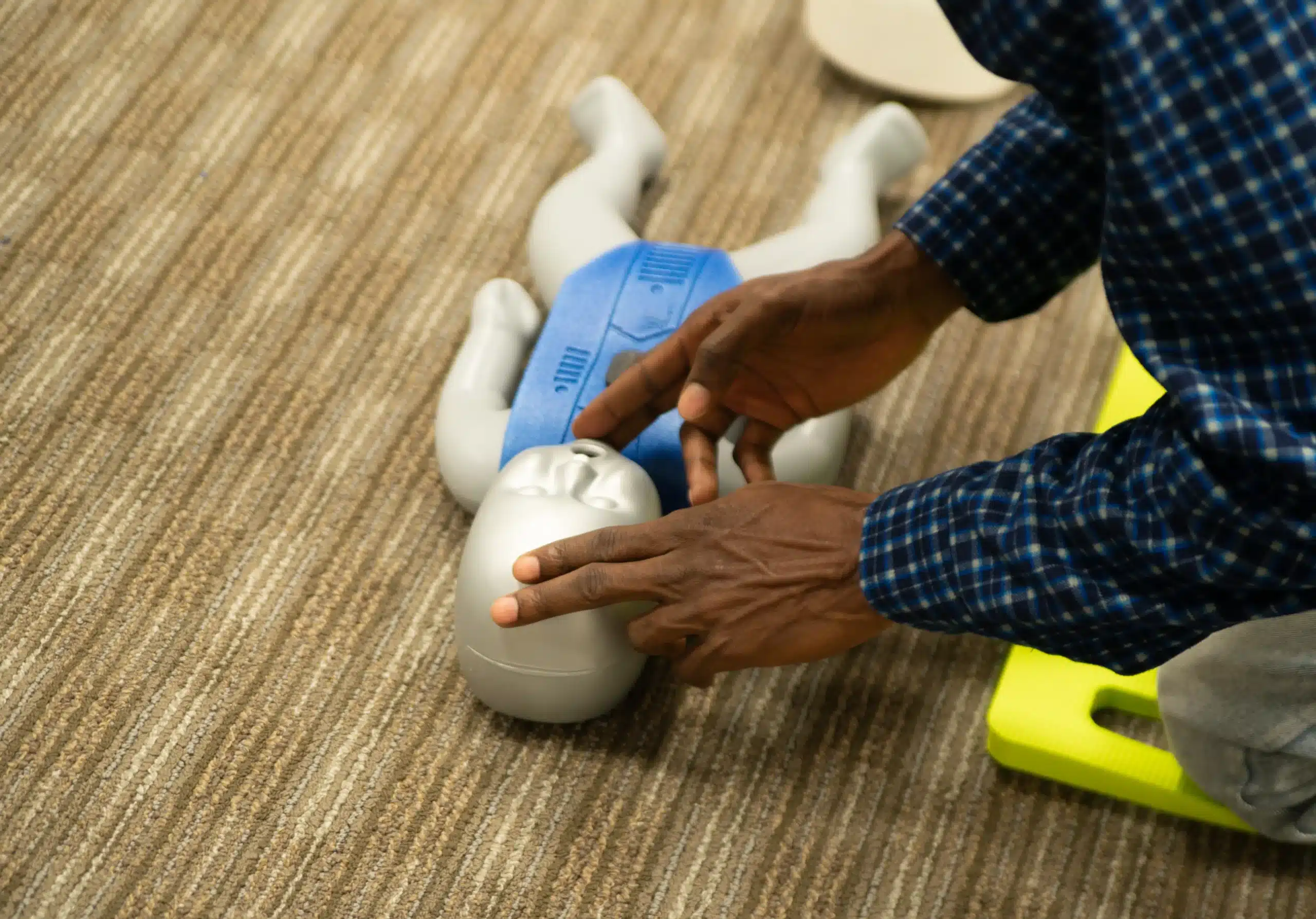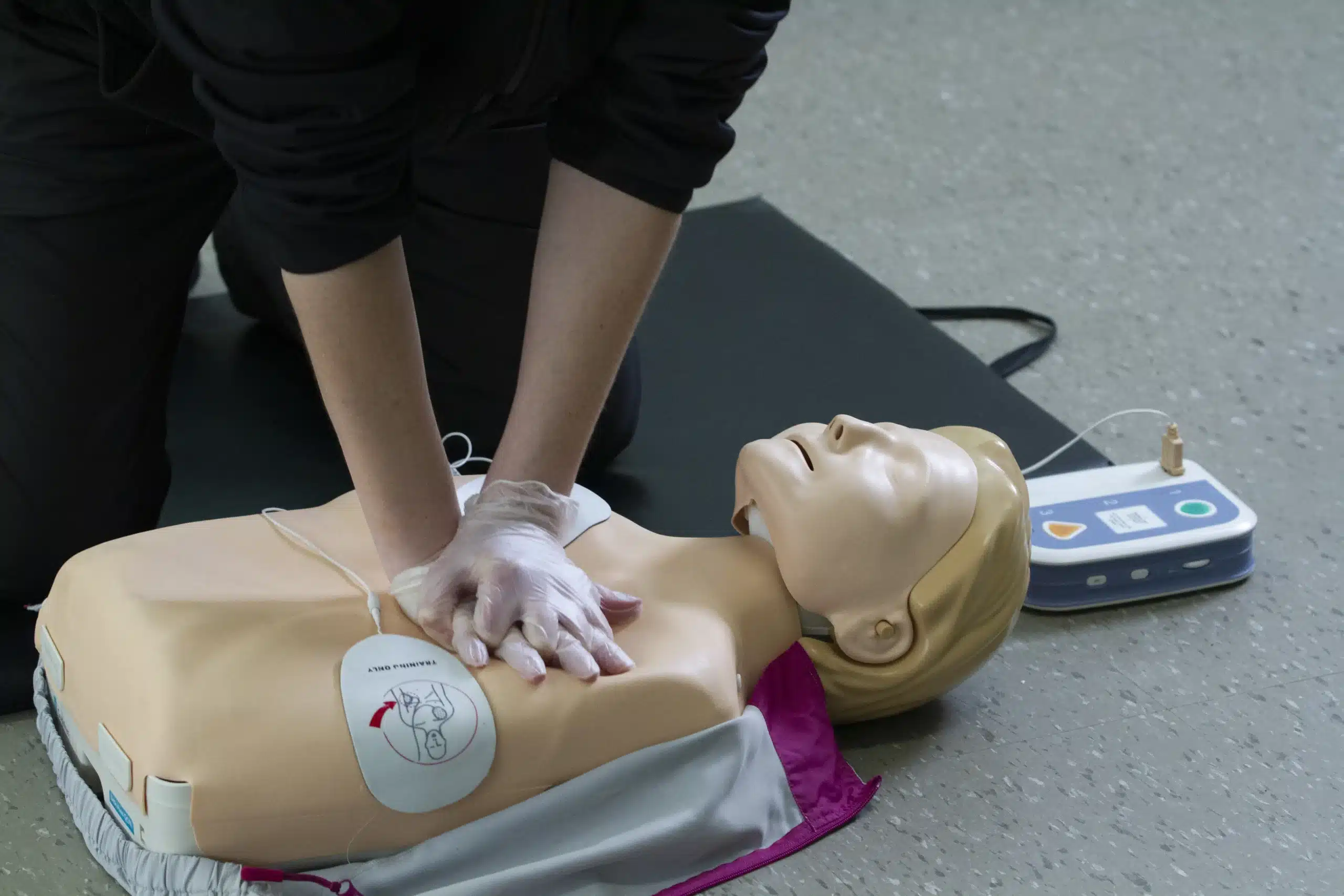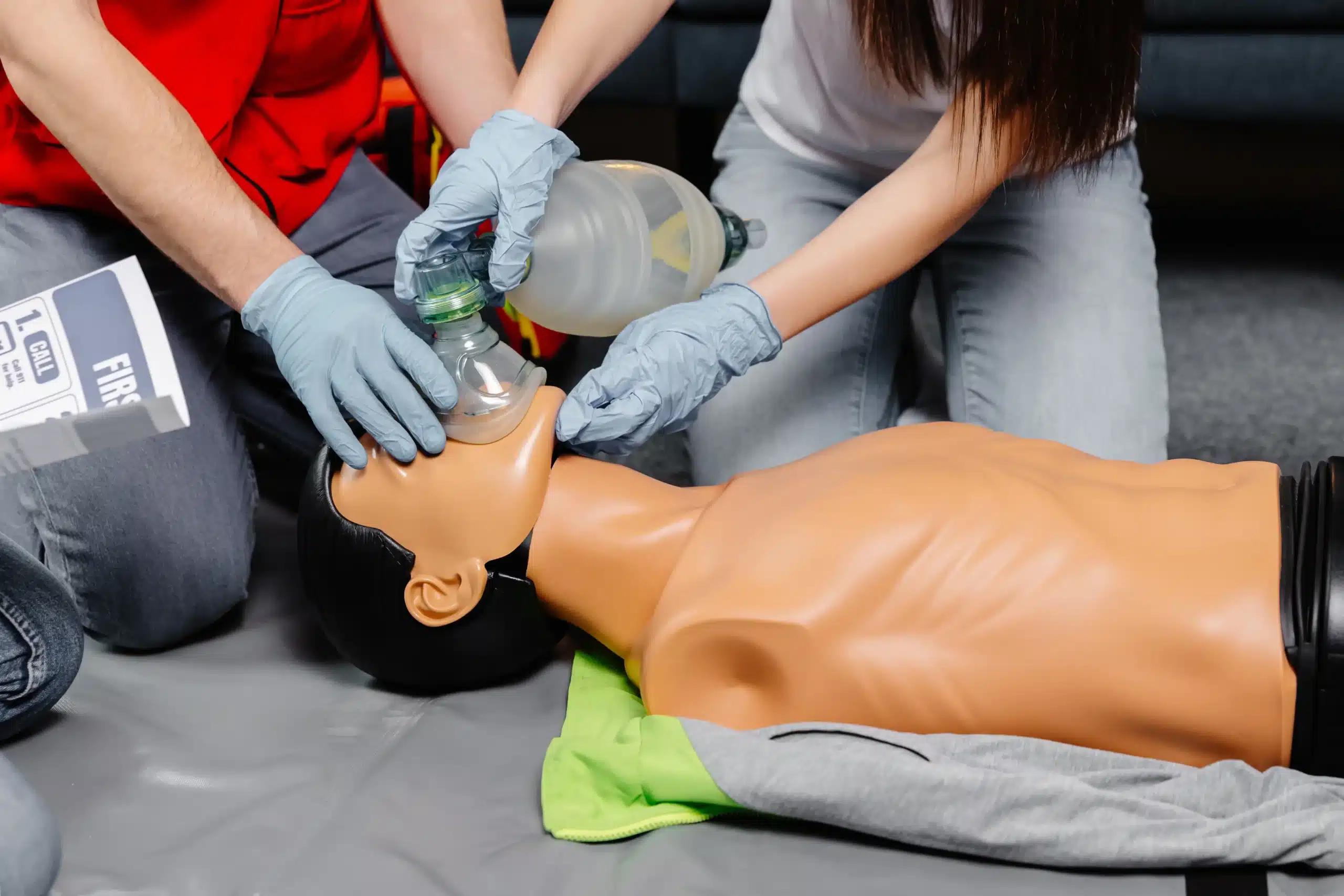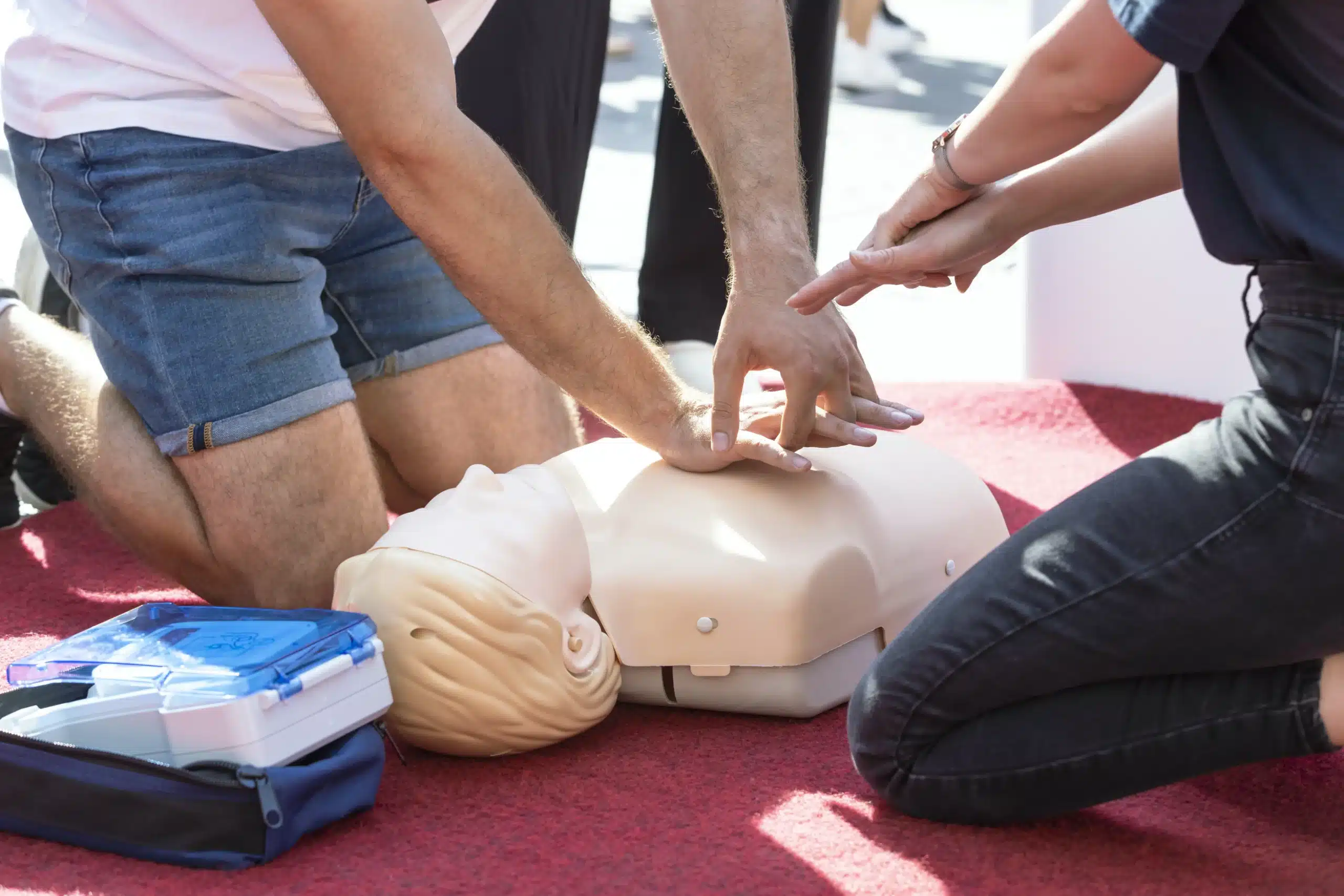Empowering yourself with life-saving skills is one of the most rewarding things you can do. If you’re in Campbell, California, and considering CPR certification, you’re in the right place. This comprehensive guide will break down everything you need to know about CPR classes in Campbell, from the various types of certifications available to what to expect during training. We’ll also discuss the benefits of CPR training, debunk common myths, and provide valuable resources for ongoing learning. Whether you’re a healthcare professional, a concerned parent, or simply someone who wants to be prepared for emergencies, this guide will help you find the perfect CPR class to meet your needs.
Key Takeaways
- CPR certification equips you to respond to emergencies: Whether you’re a healthcare professional or a concerned citizen, CPR training empowers you to act quickly and confidently in critical situations. Find a course that aligns with your individual needs and goals.
- Campbell CPR Classes offers accessible training options: Explore their diverse range of AHA-certified courses, convenient schedules, and competitive pricing. Take advantage of their group discounts and commitment to excellent customer service.
- Maintain your CPR skills through ongoing practice: Regularly refresh your knowledge and skills to stay prepared for emergencies. Utilize online resources and consider refresher courses to ensure your proficiency remains up-to-date.
What are CPR Classes in Campbell?
CPR classes in Campbell equip you with the life-saving skills to respond to cardiac and breathing emergencies. These courses cover essential techniques like chest compressions, rescue breaths, and how to recognize the signs of a heart attack or stroke. Whether you’re a healthcare professional, a concerned parent, or simply someone who wants to be prepared, CPR certification empowers you to make a difference in critical situations. Campbell offers various CPR class options to suit different needs and schedules. Many courses are based on the American Heart Association (AHA) guidelines and lead to nationally recognized certifications. For those looking for convenient and reputable training, consider checking out Campbell CPR Classes.
CPR Class Types
You’ll find several types of CPR classes in Campbell, including:
- BLS (Basic Life Support): Geared towards healthcare providers and those in the medical field, BLS certification covers advanced CPR techniques, airway management, and the use of an AED (automated external defibrillator). The BLS course at Campbell CPR Classes provides comprehensive training in these areas. They also offer RQI classes.
- ACLS (Advanced Cardiovascular Life Support): This advanced course builds upon BLS skills and focuses on team-based resuscitation and the management of cardiovascular emergencies.
- PALS (Pediatric Advanced Life Support): Designed for healthcare professionals who work with infants and children, PALS teaches specialized CPR techniques for younger age groups.
- First Aid: Often combined with CPR training, first aid courses teach you how to respond to common injuries like cuts, burns, and fractures.
- CPR/First Aid Combination Courses: These comprehensive courses combine CPR training with essential first aid skills, providing a well-rounded approach to emergency preparedness. Campbell CPR Classes offers group discounts for these combined courses, making it a cost-effective option for families, businesses, or community groups.
Benefits of CPR Training
Learning CPR offers numerous benefits, both personally and professionally. It provides the confidence to act quickly and effectively during emergencies, potentially saving a life. For healthcare professionals, CPR certification is often a job requirement and demonstrates a commitment to patient safety. Beyond the practical skills, CPR training fosters a sense of community responsibility and empowers individuals to be prepared for unexpected situations.
CPR Misconceptions
Several misconceptions surround CPR. One common myth is that only medical professionals can perform CPR effectively. The truth is anyone can learn and administer CPR, regardless of their background. Another misconception is that CPR alone can restart a stopped heart. While CPR helps maintain blood flow and oxygen delivery, it’s often the combined efforts of CPR and advanced medical intervention that restore a normal heart rhythm. It’s crucial to remember that any attempt at CPR is better than none. Don’t let these myths prevent you from seeking CPR training and potentially saving a life. Contact Campbell CPR Classes to learn more about their low price guarantee and how they can help you become CPR certified.
Find the Right CPR Class
Finding the right CPR class depends on your individual needs and preferences. Several reputable providers offer CPR certification courses in and around Campbell.
Campbell CPR Classes
If you’re looking for American Heart Association (AHA) certified courses in Campbell, Campbell CPR Classes offers a range of options, including BLS, ACLS, PALS, and First Aid. They are committed to excellent customer service and competitive pricing, making them a popular choice for locals. Check out their low price guarantee. For larger groups, they also offer discounted group rates.
Other Reputable Providers
You have other solid options for CPR certification in the area beyond Campbell CPR Classes.
Safety Training Seminars
Safety Training Seminars also provides AHA-approved certifications in CPR, BLS, ACLS, PALS, and First Aid. Their flexible schedule, with classes offered daily from 8 am to 10 pm, seven days a week, accommodates busy schedules.
American Red Cross
The American Red Cross offers CPR and First Aid classes in nearby San Jose. They provide both in-person and blended online/in-person learning options, giving you flexibility. Their courses meet OSHA compliance standards, which is important for many workplaces.
ProCPR
ProCPR offers a variety of CPR training options, including convenient online courses. This can be a good option if you prefer to learn at your own pace and on your own schedule.
Choosing a Class
When selecting a CPR class, think about your priorities. Do you need a specific certification like BLS? Is schedule flexibility important? Some providers, like ProCPR, offer the convenience of online learning, while others focus on in-person training. Consider what learning style best suits you. Also, think about ongoing training. Staying up-to-date with the latest guidelines is important, so look into options like online renewal courses, such as those for RQI. The best CPR class meets your individual needs and helps you feel confident responding to an emergency.
Costs, Schedules, and Accessibility
Finding a CPR class that fits your budget and schedule is easier than you think, especially with the variety of options in Campbell. Let’s break down the typical costs, schedules, and ways to make training more accessible.
Course Pricing
CPR class prices vary based on the certification level you need. Basic CPR classes are generally the most affordable, while more advanced certifications like ACLS and PALS typically have a higher price tag. Many providers, including Campbell CPR Classes, offer a low price guarantee to ensure you’re getting the best value. Comparing pricing from different providers is always smart before committing to a class.
Class Times and Duration
Most CPR training centers understand busy schedules. You’ll find classes offered on various days and times, often including evenings and weekends. Campbell CPR Classes, for example, offers flexible scheduling to accommodate different needs. Class duration depends on the certification type. Basic CPR courses might take a few hours, while more comprehensive training like ACLS or PALS could take a full day. You can usually find this information on the provider’s website or by contacting them.
Discounts and Payment Plans
If cost is a concern, look into potential discounts. Some providers offer discounts for group bookings, students, or other groups. Payment plans might also be available to spread out the training cost. Check with your chosen provider about their options. Additionally, exploring programs like RQI can sometimes offer a more streamlined and potentially cost-effective path to certification.
Certification and Training
Getting certified in CPR shows you’re ready to help in an emergency. Here’s what you should know about our certifications, training formats, and testing process.
AHA Certifications
Campbell CPR Classes offers certifications through the American Heart Association. These are widely accepted and respected certifications. We offer CPR, Basic Life Support (BLS), Advanced Cardiovascular Life Support (ACLS), Pediatric Advanced Life Support (PALS), and First Aid certifications. These are valuable whether you’re a healthcare professional or just want to learn lifesaving skills.
Course Format and Expectations
We offer classes seven days a week, between 8 am and 10 pm, to accommodate busy schedules. Our RQI program blends online learning with in-person skills sessions for added flexibility. Choose from BLS, ACLS, PALS, and combined CPR/First Aid classes. We also offer group discounts and can conduct training at your location.
Skills Testing and Certification
You’ll test your skills using a voice-activated mannequin, allowing you to practice independently. Instructors are available by phone if you have any questions during the skills test. You’ll receive your AHA certification card the same day you successfully complete the in-person skills check. Certifications are valid for two years, keeping your skills current.
Enhance Your CPR Learning
Learning CPR is a journey, not a destination. Here’s how to make the most of your training, from pre-course prep to ongoing skill maintenance:
Prepare for Your Course
Walking into your CPR class feeling prepared can make a big difference. Watching some pre-course videos can significantly increase your chances of passing the skills test. This preparation helps you familiarize yourself with the techniques and terminology, allowing you to focus on hands-on practice during the class. Feeling confident going in can really enhance the learning process. At Campbell CPR Classes, we offer resources to help you prepare, so feel free to contact us if you have questions before your class.
Online Resources
Beyond pre-course materials, explore additional online resources to deepen your understanding. The Red Cross offers helpful online resources and manuals that cover the fundamentals of CPR. Reviewing these materials can reinforce concepts and answer any questions you might have. These resources can be especially valuable for visual learners or those who prefer to study at their own pace.
Continuous Learning
CPR, especially for healthcare professionals, isn’t a one-and-done deal. It requires consistent practice and ongoing education to maintain proficiency. Think of it like any other important skill—regular refreshers are key. Regular assessments are also important for measuring skill acquisition and retention. Consider enrolling in refresher courses or practicing with friends or family to keep your skills sharp. Staying up-to-date on the latest guidelines ensures you’re always prepared to provide effective assistance in an emergency. Check out our RQI classes for convenient and flexible ongoing training options.
Enroll in a CPR Class
Now that you understand the importance of CPR certification, it’s time to take action and enroll in a class. This section will guide you through registration, what to expect during training, and how to continue learning afterward.
Register for a Class
Finding a CPR class in Campbell is easy. Campbell CPR Classes offers various courses at 125 E Sunnyoaks Avenue, Suite 111. Register directly through their website, where you’ll find class schedules and availability. With classes offered seven days a week, from 8 am to 10 pm, they make it convenient to fit CPR training into your busy schedule. They also have over 60 locations throughout Northern California.
What to Bring
CPR training is hands-on and can be moderately physically demanding. Wear comfortable clothing that allows free movement. If you have physical limitations, contact Campbell CPR Classes beforehand to discuss any necessary modifications. They’re happy to help and can work with you to ensure a comfortable learning experience. Rescheduling is always possible.
Post-Training Support
Earning your certification is just the beginning. Regular practice and staying current with the latest CPR guidelines are essential for maintaining your skills and confidence. Consider online communities or refresher courses to reinforce your training. Feedback is crucial for improving CPR performance, so ask your instructor for personalized advice and resources. The goal is to be prepared and confident should you ever need to use your skills in a real emergency.
Related Articles
- CPR Certification in San Jose: A Complete Guide
- CPR Classes in Cupertino: Your Ultimate Guide – Campbell CPR Classes
- ACLS Courses in Campbell: A Complete Guide
- CPR Myths Debunked for Better First Aid
- Discounted CPR Classes in Santa Clara County – Campbell CPR Classes
Frequently Asked Questions
What’s the difference between BLS and CPR?
CPR is a core component of BLS, but BLS goes further. Think of BLS as the advanced version, especially for healthcare providers. It includes CPR, but also covers using an AED (automated external defibrillator), clearing airways, and other team-based resuscitation techniques. A regular CPR class is great for anyone, but if you work in healthcare, BLS is usually the required certification.
How much do CPR classes cost in Campbell?
The cost depends on the type of class and the training center. Basic CPR classes are generally the most affordable, while more specialized certifications like BLS, ACLS, or PALS are a bit more. It’s always a good idea to compare prices from different providers. Campbell CPR Classes offers a low price guarantee, so you know you’re getting a competitive rate. Also, check for group discounts if you’re signing up with friends, family, or coworkers.
How long does it take to get CPR certified?
Most basic CPR classes can be completed in a single day, often within a few hours. More advanced courses like BLS, ACLS, and PALS typically require a full day of training. Some providers also offer blended learning options, combining online coursework with shorter in-person skills sessions. This can be a great way to fit training into a busy schedule.
What if I have physical limitations? Can I still take a CPR class?
Absolutely! CPR training can be adapted to accommodate various physical limitations. Just let the training center know about your needs beforehand. They can modify certain techniques or provide assistance during the skills practice. The important thing is to learn the core principles and adapt them to your abilities.
How often do I need to renew my CPR certification?
CPR certifications are typically valid for two years. Staying current is crucial, as guidelines and best practices can change. Many training centers offer refresher courses or renewal options to help you maintain your skills and keep your certification up-to-date. Some providers also offer programs like RQI, which provides a more flexible and ongoing approach to skills maintenance.


